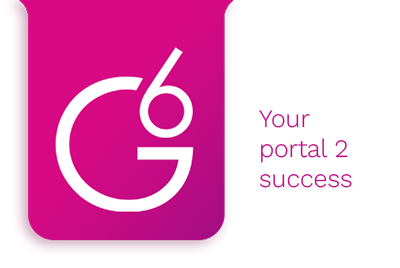Do small business owners need to know about CRM marketing? How does CRM impact a business’s marketing strategy?
You’re not using your customer relationship management (CRM) software to the fullest if you’re not utilizing CRM marketing technology.
My name is AJ, and CRM marketing was one of the ways we were able to build, scale and eventually exit (for multiple seven figures) my first business.
After years of running targeted campaigns and learning the ins and outs of CRM tools, I’ve compiled this guide for small business owners.
What is CRM marketing? Let’s learn more!
Key Takeaways
CRM marketing is the strategies and technologies your team uses to build and manage customer relationships.
CRM marketing ensures your campaigns result in high ROI, segment customers into smaller groups and present marketing results in an easy-to-read display.
Some of the popular marketing channels include social media outlets, email, and paid advertisements.
CRM marketing ensures you understand your customer base thoroughly, leading to better relationships and higher customer retention rates.
SBB Featured Partners
Customer relationship management (CRM) marketing refers to the strategies, tactics, technologies, and systems your marketing team uses to manage customer relationships.
Ideally, your company gathers and organizes data about customer interactions throughout the customer’s lifetime.
Therefore, you understand your customers and when,where and how it’s best to market to them.
In essence, CRM marketing isn’t a single marketing channel as much as it’s a customer segmentation strategy for your other true marketing channels (Google Ads, Social, Email, etc.).
CRM marketing aims to improve and optimize customer relationships.
Why should your business optimize relationships?
Companies that focus on building and managing customer relationships experience the following benefits:
Customer loyaltyImprove retention ratesBoosts in revenueHigher customer lifetime value
Lastly, improving potential and existing consumer relationships is essential because it leads to higher retention rates.
It is cheaper for businesses to sell products and services to existing companies than to find a new customer.
The primary difference between a CRM system and marketing is what business aspect they focus on.
For instance, CRM systems are primarily used as sales tools. This software aims to identify potential leads and implement the best strategy to secure a sale.
Further, CRMs offer detailed pictures of a company’s sales process, pointing out weak points and bottlenecks. As a result, businesses enjoy streamlined sales pipelines.
On the other hand, marketing tools specialize in lead generation and nurturing.
Marketing efforts help you learn more about your customer’s shopping patterns and behaviors. Therefore, you can implement personalized campaigns that lead to loyal customers.
CRM marketing has numerous benefits, and I’ve compiled a list of the top six!
One advantage of CRM marketing software is that you and your team can easily view your return on investment.
Therefore, you ensure your marketing teams create campaigns that lead to sales.
Marketing CRM software allows you to group existing customers based on their interactions with your company.
For instance, you might segment customers who click on social media ads in a separate category from those who interact with email marketing messages.
Because CRM marketing systems track customer behaviors and preferences, you understand your audience deeper.
Therefore, you can personalize communications and advertisements, building stronger customer relationships.
Did you know CRM marketing tools can track how long customer responses take? The software can also group response times, indicating when customers are active.
Tracking responses allows you to stay ready when handling customer inquiries and sales pitches.
Marketing campaigns collect a lot of data, which can be challenging to decipher if you don’t know what to look for.
Fortunately, CRM marketing technology creates intuitive charts and reports, ensuring you know what’s happening!
The main goal of CRM marketing is to build better customer relationships.
With a CRM system, you can develop campaigns that drive loyalty and repeat purchases by understanding their behaviors and preferences.
CRM software utilizes customer data to build relationships and, as a result, improve sales and revenue.
Here are the three types of CRM systems!
Collaborative CRM systems ensure employees across different departments can access the same data.
As a result, businesses improve cross-team communication and collaboration, ensuring customers don’t have to repeat themselves when speaking to employees in different departments.
Collaborative CRMs ensure everyone within your company is on the same page, regardless of the number of employees. Not only does this result in less frustration for your customers, but it also makes your employees’ lives easier!
Operational CRM systems create leads and help your team convert these leads into contacts.
This type of CRM is perfect if your company does an excellent job attracting potential customers yet has difficulty encouraging them to buy something.
Compared to other CRMs, operational CRM systems are the best for retaining customers and building strong customer relationships.
The third type of CRM is analytical.
Analytical CRM systems are designed to help companies organize, share, and visualize large chunks of customer data.
As a result, your company understands which actions lead to the most success.
Analytical CRM systems are ideal if you desire actionable customer insights and have to organize large chunks of data.
CRM marketing channels are marketing teams’ methods to deliver a company’s message to its audience.
Companies use marketing channels to gain insights into their customers and see what communication styles they’re most attracted to.
Email marketing is an effective way to build stronger customer relationships by gathering important data.
With this type of marketing, you can send the following messages:
Information about sales, discounts, or limited-time offersProduct suggestionsCompany updatesTransaction tracking and updatesPost-sale surveys
Many companies automate some or every part of email campaigns, utilizing the data to create personalized content in the future.
Mobile marketing has become extremely popular as smartphones and smart devices have advanced.
Mobile marketing is a multi-channel online marketing technique that aims to reach an audience on their smart devices, SMS, social media, or mobile applications.
Because people often use their phones, these marketing strategies can collect in-depth data about existing and potential customers.
Organic social media is the best way to engage customers in meaningful conversations and discover what topics they’re interested in.
Additionally, you can use social media data to send messages about sales or discounts.
CRM marketing with organic social media helps companies build brand awareness and track meaningful customer interactions.
Paid advertisements are ideal if you run multiple campaigns simultaneously.
Further, paid ads provide flexibility regarding where you gather customer data.
For instance, you can run paid advertisements on the following outlets:
Social mediaRadioTelevisionMobile apps (games, news outlets, etc.)
Call center marketing is an inbound marketing strategy, meaning it requires customers to contact you rather than the other way around.
With call center marketing, customer service reps handle calls and inquiries quickly with the help of a CRM system.
Your CRM system organizes customer reports, allowing your agents to service your audience better and improve customer relationships.
Direct mail marketing is physical items (pamphlets, flyers, etc.) your company sends to customers.
This type of marketing aims to attract potential customers and inform them of your products or services.
While print and direct mail marketing isn’t as popular as it was once, it is still an effective technique when you use data from a CRM platform.
CRM marketing automation is a set of tasks that software automatically execute based on specific customer activities.
For example, some tasks that CRM marketing automation completes include the following:
Segmenting customers based on recent activities or transactionsSending customers relevant SMS or email messages (including offers, brand updates, and incentives)Tracking customer responsesOptimizing future communication methods
CRM marketing automation is valuable because it saves marketing departments time, helping them avoid routine tasks.
As a result, your team spends more time on creative parts of the job!
As I’ve mentioned, CRM marketing software includes numerous features that ensure you attract potential customers and cater to existing ones.
Here are seven of my favorite features sales and marketing teams need to provide excellent customer service.
CRM marketing systems centralized customer data, ensuring employees from different departments access identical information.
Centralized data ensures your team has a comprehensive view of each customer, including the following details:
A customers interaction historyBuying patterns and behaviorsCustomer feedback historyGeneral contact informationInteraction history
Centralized data ensures your team provides an excellent customer experience because everyone has up-to-date information!
Customer segmentation organizes existing customers into groups based on their shared characteristics.
For example, you can segment customers based on the following characteristics:
Ways they interact with your business (email, social media, etc.)Types of products or services they buyHow they purchase products (mobile device, desktop, in person)
Using your CRM platform to group customers into different categories allows you to run personalized marketing campaigns.
Targeted marketing campaigns are an effective way to increase brand awareness and engage customers.
Your CRM tool will help you create specialized campaigns that adapt to different customer behaviors.
For instance, your team can design email campaigns with personalized offers they’ve shown interest in in the past.
Targeted campaigns improve customer retention rates because buyers feel more connected with your company.
Bulk email send-outs are a great way to inform customers of upcoming sales, promotions, and company updates.
Using CRM software, you can automatically send emails to groups of customers based on similar interests or buying habits.
Not only does automation ensure timely delivery, but it also helps you measure customer engagement with your message.
Bulk emails can collect and organize valuable customer data your company can use to increase sales!
Data-driven messaging is one of the most critical components of CRM marketing.
Marketers utilize data-driven marketing to send personalized messages and experiences to audiences by seeing how customers interact with the company.
Also, you should use purchase history and demographics for data-driven marketing.
Your CRM platform provides meaningful insights into customer behavior and preferences.
Using this data, you can create custom campaigns that target specific customers with messages they’ll appreciate.
Effective campaigns require constant optimization to keep up with the latest customer demands.
With CRM marketing software, you can use real-time customer data and adjust your campaigns accordingly.
For example, if a campaign fails to generate leads or sales, you can quickly analyze what went wrong and make changes.
Marketing automation features let you easily automate business processes, such as the following metrics:
Lead nurturingCustomer segmentationCampaign follow-upsSocial media posts
Automating these processes ensures your team spends more time on creative tasks rather than repetitive ones.
Simply put, marketing automation helps you and your team save time and money by doing boring tasks for you!
Now that you’ve learned the benefits of CRM marketing, it’s time to discover how to use customer relationship management for marketing purposes.
Fortunately, we can break down this process into five simple steps! Let’s take a look.
The first step is choosing a CRM system for your company.
There are numerous CRM tools available, so it’s essential to know what you’re looking for.
Some factors to consider while choosing a CRM system include the following:
PriceEase of useFeatures (consider what your marketing, customer service, and sales teams need)Third-party integrations
Also, search for CRM systems with free trials or demos, ensuring you don’t waste money on software that doesn’t fit your demands.
Once you’ve chosen a CRM system, it’s time to pick your marketing channels.
These channels can include email, SMS messages, social media platforms, websites, and more!
Keep in mind that different customer segments prefer different methods of communication.
For example, most young adults use Instagram and Snapchat, while seniors favor emails.
Understand your audience data, so you communicate effectively; this leads to better relationships, more long-term customers, and higher sales.
The third step is segmenting your audience for targeted campaigns.
Your CRM platform will sort customer data into different groups based on their characteristics, such as buying habits or demographics.
Segmenting your customers allows you to tailor specific messages that meet each group’s needs.
For example, if a customer purchased several items in the past, you can send them a promotion for similar products. That way, you continue strengthening the relationship and building loyalty.
Once you’ve segmented your customers, it’s time to track their journey.
Analyze customer engagement and interaction data to understand how buyers interact with your business and the types of messages they respond best to.
Tracking customer journeys also ensures you immediately identify weak spots or problems in the sales process. That way, your marketing CRM continually improves.
Reviewing CRM marketing results with your team is critical.
Think about it. If you never analyze how your campaigns perform, how do you know how to improve?
Schedule weekly or bi-weekly meetings with your marketing team to review your strategy, fix mistakes, and implement it again!
Your company can use CRM marketing in numerous ways to increase sales and customer engagement.
Example:
Over time you build up a customer database in your CRM, segmenting your audience by demographics (age, location, etc.).
At some point, you reach enough customers in your CRM to have a significant amount of 18-30 year-olds that live in Minneapolis.
Now, you can use targeted emails or paid advertising to reach those customers for the products/services you sell.
Here’s a list of the best marketing CRM platforms in the industry!
HubSpot is the right marketing CRM for your business if you’re on a budget because the provider has a free plan.
When you’re ready to scale, HubSpot’s plans range from $45 to $3,600 monthly.
Some features include automation, AI-powered reporting tools, and landing pages.
Bigin by Zoho is another affordable marketing CRM platform that includes mobile functionalities.
Additionally, Bigin has several third-party integrations you can connect to, ensuring your team has everything they need.
One detail to remember is that Bigin is a little confusing for users accustomed to traditional CRM interfaces.
Still, Bigin is a powerful tool backed by Zoho CRM, a leading CRM provider.
Freshmarketer is perfect for eCommerce businesses because it has several marketing automation features that drive sales.
Additionally, Freshmarketer aims to provide your company with a personalized multi-channel engagement platform.
Freshmarketer includes the following features to help your business thrive:
Buyer segmentationTargeted promotionsAutomated workflowsUnified platform
This CRM solution offers a 21-day free trial so you can test the platform and see if it’s right for your team.
EngageBay has several tools that help businesses manage their data and customer needs.
Regarding marketing software, EngageBay offers advanced marketing automation, helping your company save time.
Some of the marketing automation features include the following:
Form and landing pagesEmail sequencesEmail template builderAuto Responder
EngageBay’s CRM marketing software is available for free for up to 250 contacts (perfect for small businesses).
Still, the provider has advanced solutions as you scale, with plans ranging from $11.95 to $73.59 monthly.
Using CRM marketing tools for your small business is an excellent way to improve relationships, increase customer engagement, and boost sales.
By understanding the key components of CRM marketing, you can optimize campaigns in real-time and target audiences with personalized messages that generate higher conversions.
Remember, the stronger customer relationships you build, the more likely your audience is to continue purchasing your products or services.
What CRM marketing tools does your business use most? Let us know in the comments section below!
And good luck finding the best CRM marketing software for your business!
The post CRM Marketing Explained for Small Businesses appeared first on Small Business Bonfire.
—
Blog powered by G6
Disclaimer! A guest author has made this post. G6 has not checked the post. its content and attachments and under no circumstances will G6 be held responsible or liable in any way for any claims, damages, losses, expenses, costs or liabilities whatsoever (including, without limitation, any direct or indirect damages for loss of profits, business interruption or loss of information) resulting or arising directly or indirectly from your use of or inability to use this website or any websites linked to it, or from your reliance on the information and material on this website, even if the G6 has been advised of the possibility of such damages in advance.
For any inquiries, please contact [email protected]




